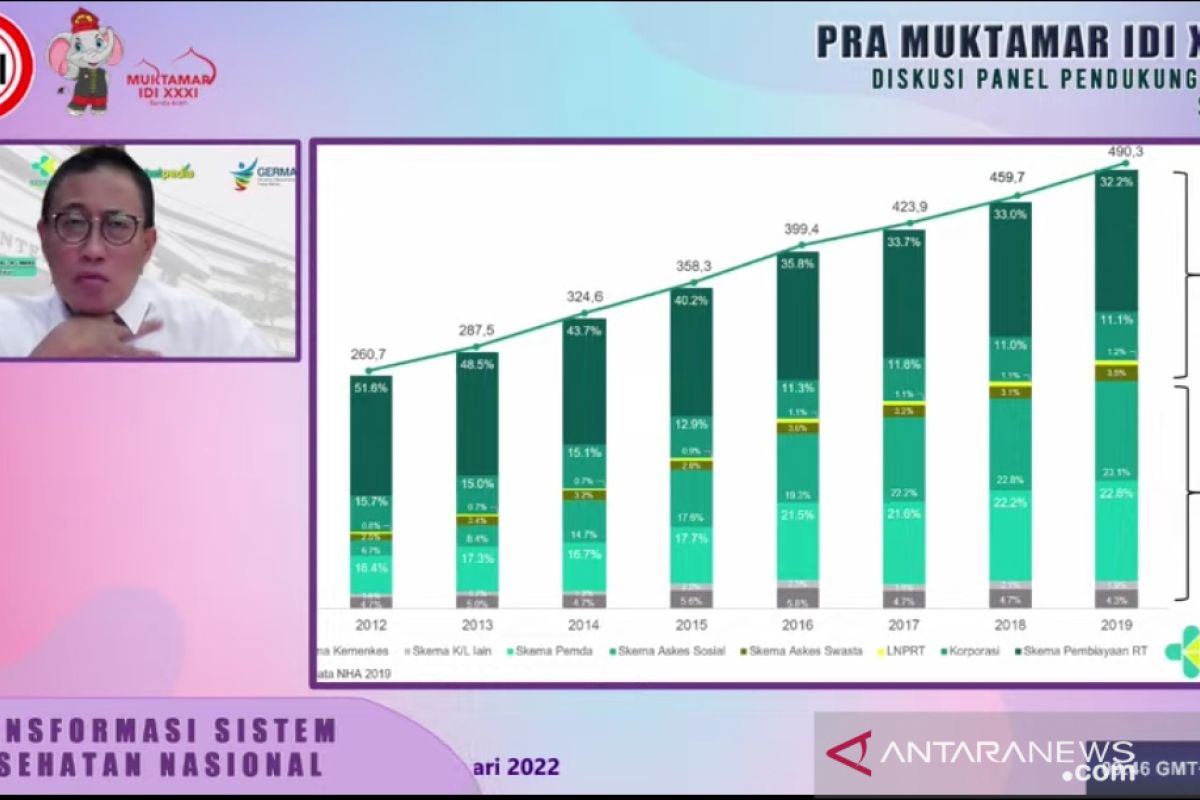The more the government spent, the more our people's health should have improved.Jakarta (ANTARA) - Indonesia has continued to see health problems despite the relatively large mitigation fund that the government allocates each year, an official from the Ministry of Health said at an event streamed on YouTube on Thursday.
"Our health spending always increases each year. Our health spending each year is quite large with Rp490 trillion distributed on average," director general of health services at the ministry, Abdul Kadir, highlighted.
Around 52.1 percent of the budget is absorbed through the state-owned Healthcare and Social Security Agency (BPJS Kesehatan) and regional government services, he noted.
"This means that the health (funding) absorption in the private sector and on an individual level has reached 47.9 percent," he informed.
Related news: National health transformation is key agenda at IDI's 31st congress
However, Indonesia has continued to face escalating health problems despite the relatively large government funding in health sector programs, he said.
For instance, citizens' life expectancy at birth was 71 years in 2018 in Indonesia, he added.
This figure was lower than for Australia (83 years), the United States (79 years), Turkey (77 years), and several nations in East Asia and Pacific where life expectancy was 75 years, Kadir said.
"We should analyze this. By improving life expectancy, Indonesia's population pyramid will change. This means that our elderly population will increase and special services for the elderly should also increase," he remarked.
The next issue concerns stunting, or the birth of children with below-average body height, that has not shown any signs of decline, he said.
"Stunting still occurs in 28 percent of our infant population on average," he pointed out.
Moreover, Indonesia has the second-highest tuberculosis cases in the world, he reported.
Related news: Travelers from Saudi Arabia constitute bulk of Indonesia's 882 cases
In addition, the number of deaths due to non-transmissible diseases, such as cancer, diabetes, heart disease, and stroke, in Indonesia is higher than in Southeast Asia, with average fatalities pegged at 60 percent per year, Kadir noted.
Indonesia also has the largest number of smokers aged 15 years and above in ASEAN, he highlighted.
Kadir then urged the Indonesian Medical Association (IDI) to discuss the issue through the 31st Muktamar, an Islamic term for an organizational meeting, which will be held from March 22 to March 25, 2022, in Aceh.
"The more the government spent, the more our people's health should have improved. This means that there is something that has to be analyzed in the Muktamar later," he remarked.
Related news: Minister Marsudi calls to step up global efforts against COVID-19
Related news: Bolster collaboration to become global maritime axis: VP Amin
Translator: Andi Firdaus, Fadhli Ruhman
Editor: Fardah Assegaf
Copyright © ANTARA 2022












